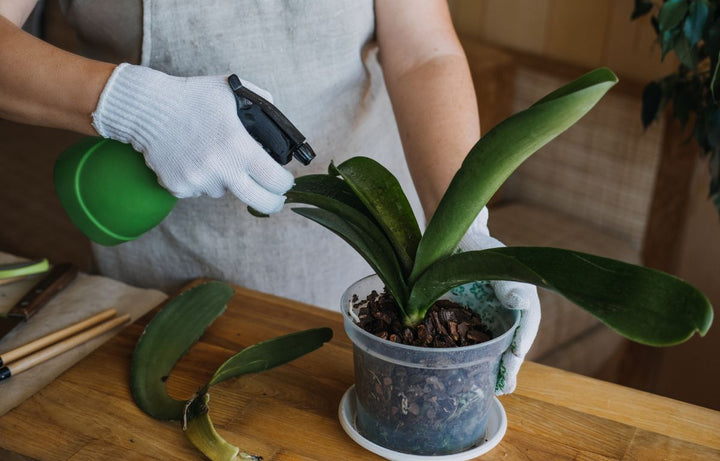
A Comprehensive Guide To Neem Oil
A Comprehensive Guide To Neem Oil
Houseplants bring a touch of nature indoors, creating a serene and aesthetically pleasing environment. However, keeping these plants healthy can be a challenge due to pests and diseases. One natural solution that has gained popularity among plant enthusiasts is neem oil. Not only is it a highly effective pest repellent and fungicide, but it is non-toxic and safe to use around children and pets!

Neem oil is a natural pesticide extracted from the seeds of the neem tree (Azadirachta indica), which is native to the Indian subcontinent. The neem tree has been revered in traditional Indian medicine for centuries, known for its extensive medicinal properties. The oil derived from its seeds contains several active compounds, most notably azadirachtin, which is responsible for its pest-repellent properties.
Why Use Neem Oil for Houseplants?
Natural Pest Control: Neem oil is highly effective against a variety of common houseplant pests, including aphids, spider mites, whiteflies, and mealybugs. It disrupts the life cycle of insects, preventing them from feeding, breeding, and growing.
Fungal Disease Prevention: It also has antifungal properties, making it useful in controlling issues like powdery mildew, black spot, and root rot.
Environmentally Friendly: Neem oil breaks down quickly in the environment, reducing the risk of contamination to water sources and soil, making it an eco-friendly option.
Non-Toxic to Humans and Pets: Unlike synthetic pesticides, diluted and dried neem oil is safe to handle once applied to the plant without the residue needing to be wiped or washed away beforehand. It can even be safely used on edible crops, making it an excellent choice for indoor plant care.
Liquid Form: Although neem oil is a natural substance, ingestion of very large quantities can be harmful, and in its concentrated form, has been known to cause skin irritation. It is strongly recommended to store neem oil out of reach of children and pets when not in use to prevent accidental spillage or ingestion. Only apply it to your plant in a well-ventilated environment, and wear gloves when handling it in liquid form.
When to Use Neem Oil
Early Detection of Pests: It's best to use neem oil at the first sign of pest infestation. Early treatment can prevent a minor problem from becoming a major one.
Regular Maintenance: Applying neem oil periodically as a preventive measure can help keep your houseplants free from pests and diseases.
During Growth Periods: Use neem oil more frequently during the growing season when plants are more vulnerable to pest attacks.

How to Use Neem Oil
Dilution: Neem oil is usually sold in concentrated form. Mix 1-2 tablespoons of neem oil with one gallon of water. Adding a few drops of mild liquid soap helps the oil mix better with water.
Spraying: Pour the diluted mixture into a spray bottle. Spray the solution thoroughly on all parts of the plant, including the undersides of leaves where pests often hide.
Application Timing: Apply neem oil in the early morning or late evening to prevent the leaves from burning in direct sunlight. Avoid using it in extremely hot or cold temperatures.
Frequency: For existing infestations, apply the neem oil solution once a week until the pests are gone. For preventive maintenance, a bi-weekly application is usually sufficient.
Testing: Before applying neem oil to the entire plant, test it on a small area to ensure there is no adverse reaction.
Neem oil is a versatile and natural solution for keeping houseplants healthy and pest-free. Its origins in the ancient neem tree underscore its long-standing use in natural medicine and agriculture. By incorporating neem oil into your plant care routine, you can enjoy vibrant, thriving houseplants without resorting to harsh chemicals. Whether you're dealing with a stubborn infestation or simply looking to prevent future problems, neem oil is an effective and eco-friendly ally in your gardening toolkit.
Keen to learn more? Check out this blog post on how to elevate your interior with trailing plants.
